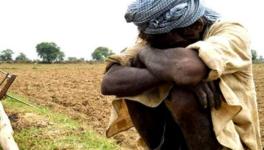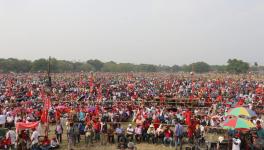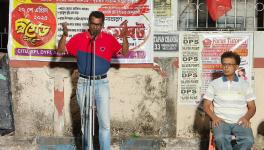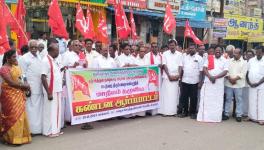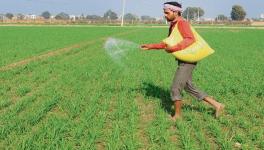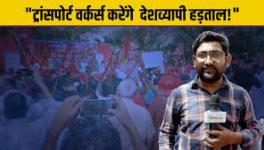GST on Dairy Products a ‘Death Warrant’ for Small Farmers, Say Farmers’ Organisations
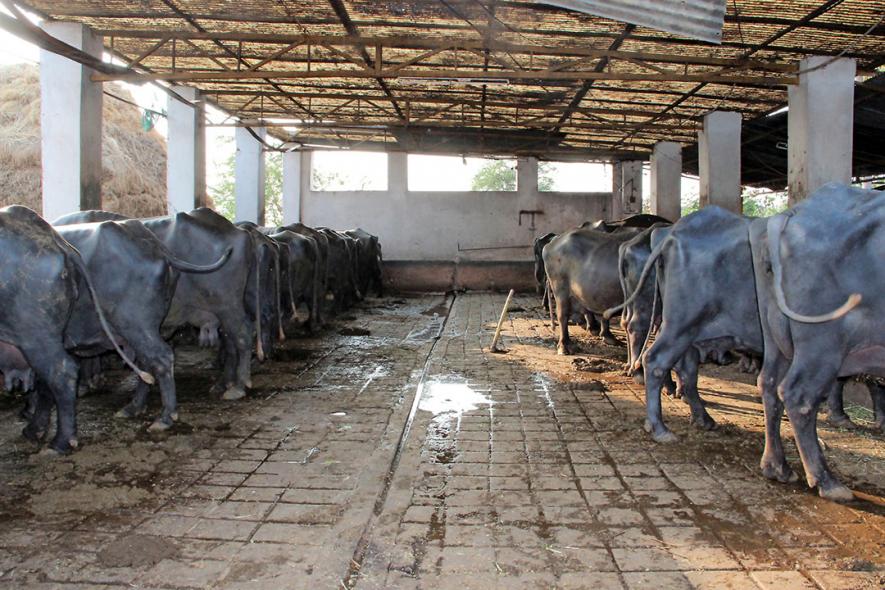
Image for representational purpose. Credit: DairyGlobal
Coming down heavily on introducing the Good and Services Taxes (GST) on dairy products, the farmers' organisations on Saturday said that it would prove to be a “death knell” for small dairies and farmers who have been barely managing the rising input costs.
Ashok Dhawale, President, All India Kisan Sabha said that recommendations of the 47th meet of the council to impose 5% GST on dairy products and increasing the tax rate from 12% to 18% on dairy machinery including the milking machines will affect over 9 crore households engaged in milk production. He said that the BJP is seeking centralisation of political authority and capital and the move remains in this direction.
Talking to NewsClick, the veteran farmers’ leader said, “India is the world’s largest milk producer, and the sector is characterised by the concentration of petty producers with 75% of the rural households owning 2-4 cows. Women and peasants from the lowest social strata are highly dependent on the dairy sector. The fact that the livestock sector contributes about one-fourth output of the agricultural sector shows the economic significance of the sector for the 9 crore farming households. However, the recent changes in GST will not benefit primary producers or consumers who are already reeling under high inflationary pressure. The increase in prices will negatively affect the nutritional requirements of people from the oppressed class, caste, and gender.”
He added that the Union Finance Ministry has used GST as a powerful tool to smash the “basic structure” of the Constitution as well as all legacies of cooperative federalism. “With states giving up their fiscal autonomy to design a tax system that could take advantage of their specific production patterns, the Union government has become extremely powerful on fiscal policies. The GST regime, in the last five years, has led to fiscal policies that favour class interests of finance and monopoly houses at the cost of poor peasants and small entrepreneurs,” he said.
Citing the examples of the impact of the GST regime in Howrah’s foundry industry and Surat’s textile industry, he said it clearly demonstrated a consolidation of big players at the cost of medium, small and marginal players on different levels of value chains.
Echoing similar sentiments, Manish Bharati, a small dairy trader and spokesperson of the Jai Kisan Andolan, told NewsClick that the present scenario reminds one of the time when people ran their businesses out of the STD phone booths. “But eventually, the telecom sector became a monopoly of a few corporates,” he said.
“The success of individual businesses depends on the capabilities of a person to operate in a given market but the scenario gets completely transformed when the government introduces policies. That is what is exactly happening in the dairy sector. Much of the milk produced gets processed through federations that package it and sell it to consumers. Now, these federations would ultimately transfer the burden to farmers and consumers. When we come to farmers, all input costs have risen, be it fodder, medicines or other inputs. The fodder’s prices have risen from Rs 800 per quintal to Rs 1600 per quintal in comparison with the previous year. Similarly, the prices of medicines have risen whereas income remains the same. To cite one example, Parag dairy, one of the largest dairies in Uttar Pradesh, did not increase a single penny for milk procured from farmers for the previous five years,” he explained.
Reports maintain that the district magistrates in Uttar Pradesh have asked village panchayat heads to provide Rs 20,000 per month for the government gaushalas. Teachers too have been informally asked to provide two quintals of fodder per month to them. Bharati said, “In this dreaded situation, the governments, both central and UP government, are utterly clueless about the crisis.”
Bharati Maintained that the handover of the dairy industry to the corporate sector began after the government proposed the fortification of milk. This came after a malnutrition report which suggested that children had a very heavy deficiency of vitamin A and the milk should be fortified to provide nutrition. He said, “The technology to fortify milk remains the monopoly of a few big dairy brands. Even Amul had to object to the proposal. So, the handover has already begun and GST is only a step ahead in this direction.”
Get the latest reports & analysis with people's perspective on Protests, movements & deep analytical videos, discussions of the current affairs in your Telegram app. Subscribe to NewsClick's Telegram channel & get Real-Time updates on stories, as they get published on our website.











